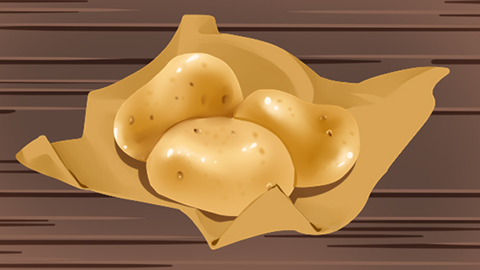Can you eat potatoes the next day after reheating them?
Generally speaking, whether leftover potatoes can be eaten after reheating depends on their storage conditions and whether they have spoiled. If the potatoes were refrigerated overnight and are in good condition, they are generally safe to eat. However, if the potatoes were left at room temperature overnight and show signs of spoilage such as mold spots, softening, blackening, or other signs of decay, they should not be consumed. The detailed analysis is as follows:

If the leftover potatoes were stored in the refrigerator and sealed using plastic wrap or similar methods, they can remain relatively fresh and bacterial growth can be reduced. In this case, the nutritional components of the potatoes remain intact, and reheating them poses no harm to the body. On the contrary, they can provide beneficial nutrients. Therefore, they can be consumed under such conditions.
If potatoes are left at room temperature overnight, especially in a warm and humid environment, the growth of bacteria and microorganisms will significantly increase, potentially producing harmful substances. Moreover, if you observe mold spots, softening, blackening, or other signs of spoilage on the surface of the potato, it indicates that the potato has spoiled and should no longer be eaten, even reheating cannot eliminate all risks.
In daily diet, it is recommended to consume appropriate amounts of food according to your own taste and needs, and to maintain a balanced and nutritious diet to meet individual nutritional requirements.




